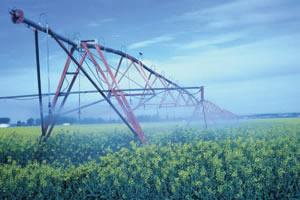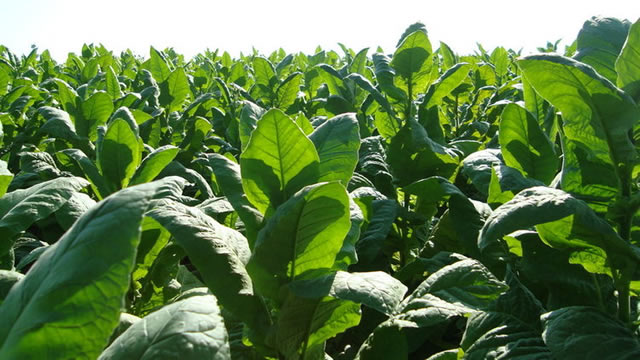Let’s invest in irrigation as rain-fed agric wobbles

Obert Chifamba and Elita Chikwati
AN estimated 80 percent of Zimbabwe’s rural population lives in Natural Regions III, IV and V where rainfall is erratic and undependable, making dryland cultivation risky. The success rate of rain-fed agriculture in Natural Regions IV and V has been observed to be in the order of one good harvest in every four to five years.
This makes it critical for farmers in those regions to supplement natural rains with irrigation to boost yields. Since the 1930s, there have been sustained efforts to promote smallholder irrigation as a way of warranting food security as well as improving the standard of living of the rural people.
Studies on the impact of such investments on smallholder agriculture have shown that producers using irrigation score significantly higher incomes than those on dryland though they apply more inputs, which suggests that there is more intensive crop production in irrigation schemes than in dryland agriculture.
With irrigation, some smallholder farmers now grow high value crops both for local and export markets, thus effectively participating in the mainstream economy. Such farmers now enjoy the human dignity of producing their own food instead of depending on food handouts from the Department of Social Welfare.
Irrigation development has also played a part in the establishment of vital infrastructure such as roads, schools, clinics and telephones while the farmers have since adopted a commercial mentality.
Recently, Government sourced irrigation equipment worth $38, 6 million from Brazil under the Food for Africa Programme, which is expected to modernise and commercialise smallholder farming and boost household income fulfilling Zim-Asset targets set under the Food Security and Nutrition cluster.
The facility, which benefited 22 000 households from communal and A1 sectors, will capacitate smallholder farmers who despite having limited resources have played a pivotal role in food production.
The equipment pieces include tractors, fertiliser spreaders, lime spreaders and centre pivots. The Ministry of Agriculture, Mechanisation and Irrigation Development is overseeing the rollout and beneficiaries will collectively use the machinery.
Agricultural production has been plummeting in recent years owing to unreliable rainfall, thanks to climate change. Consecutive droughts and in some cases floods have left farmers aground leaving the country, which used to be the breadbasket of Africa importing grain from countries such as Zambia, Malawi and south Africa.
Such facts only confirm that rain-fed agriculture is no longer reliable, hence the need to turn to irrigation.
Agriculture, Mechanisation and Irrigation Development Minister, Dr Joseph Made believes such programmes have a direct impact on food production, as farmers can produce crops that will boost their incomes.
“Ending hunger is an overall objective of the African continent. This programme will enable production of crops of all kinds including horticulture throughout the year. Most irrigation schemes that function will certainly produce surplus that will enable farmers to pay for the services rendered regarding the machinery,” he said.
The programme will enhance tillage and planting services and farmers will be able to undertake other agricultural activities such as pest and weed control using knapsack sprayers, lime application to correct the soil pH (acidity and alkalinity) using lime spreaders and winter ploughing for moisture conservation. This will also ensure early planting, which is vital in crop production, observed Dr Made.
He said Brazil had a similar programme targeting 20 million farming families whom he said could be equated to the local smallholder farmers particularly in the communal areas.
In Brazil, the project assists farmers to be food self-sufficient in terms of cereal or grain production and horticulture, which includes fruits and vegetables as well as supporting livestock production and providing market opportunities.
Surplus produce is sold to local institutions such as schools for feeding programmes across Brazil.
He said the livestock sector would also benefit from the programme since stover from the crops would be used for producing livestock feeds.
Zimbabwe’s economy is driven by agriculture and the majority of the rural people depend on it for their livelihoods.
Chabwino Irrigation Scheme chairman, Mr Thomas Vheremu, recently commended Government for the irrigation programme saying it was noble as it had enabled farmers to get equipment easily.
“We have been relying on rain-fed agriculture, which was becoming a challenge because of unreliable rainfall. Now we can produce crops throughout the year and we will also grow wheat and potatoes in winter.
“We used to get low yields of around one tonne per hectare, but I am confident that with the state-of-the-art equipment we received, our yields are going to rise. This is the best way of supporting the land reform,” he said.
Mr Vheremu said the equipment benefited 18 farmers who would pay back the loan as a group.
Another beneficiary, Mr Samuel Chikoto, also of Chabwino Farm, said his life had been transformed.
“We have a full set of equipment- tractors, discs, ploughs and fertiliser spreaders and a centre pivot. It was difficult to hire tractors every season, but now we no longer have hassles with land preparation. We have plenty of water, which we were failing to utilise as we could not afford irrigation equipment,” he said.
Agriculture economist, Mr Midway Bhunu said smallholder farmers experienced challenges with erratic rains as a result of climate change and irrigation was the only solution.
“We have irrigation schemes with the potential to produce, but have been failing as the equipment was dilapidated. This machinery will ensure farmers improve on the quality of their produce since there is modern technology to be used across the production cycle from tillage, planting, weed control and harvesting.
“This is the beginning of modernising and commercialising agriculture. Production costs will be reduced as operations will be more efficient. Farmers will produce high quality crops that will fetch viable prices on the market,” he said.
Government’s investment in smallholder irrigation development is a positive move for the agriculture sector particularly at this time when the world is faced with climate change challenges that are crippling smallholder farming. It is therefore critical to tie the programme with extension service delivery through deployment of extension officers dedicated to particular groups. This will ensure that farmers engage in viable land use to produce optimally. Farmer groups need capacity building on farming, as a shared vision and collectively produce for lucrative markets to enable repayment of loans.
Mr Bhunu said through close monitoring and guidance from extension officers and with irrigation facilities available, this development would positively contribute to Zimbabwe’s food security while production and income would rise.
“It is however critical to note that for whatever value chains, these farmers are going to be driven by markets for them to be sustainable.
“The success of the programme lies in the farmers’ skills in farm business management, availability of markets, extension service delivery and availability of electricity,” he said.
A local company, IrrigaZim is working with Brazilian engineers and engineers from the Department of Irrigation under the Ministry of Agriculture, Mechanisation and Irrigation Development to install the irrigation equipment.
IrrigaZim engineer, Mr Matthew Gatse said local irrigation experts, engineers and farmers were undergoing hands-on training at the farms where the irrigation equipment was being installed.
“The engineers will be learning during the installation of the equipment. They will mount the equipment and in the process familiarise themselves with the machinery.
“Farmers are enthusiastic and we are working with them during installations so that they get more knowledge to operate and maintain the equipment,” he said.









Comments